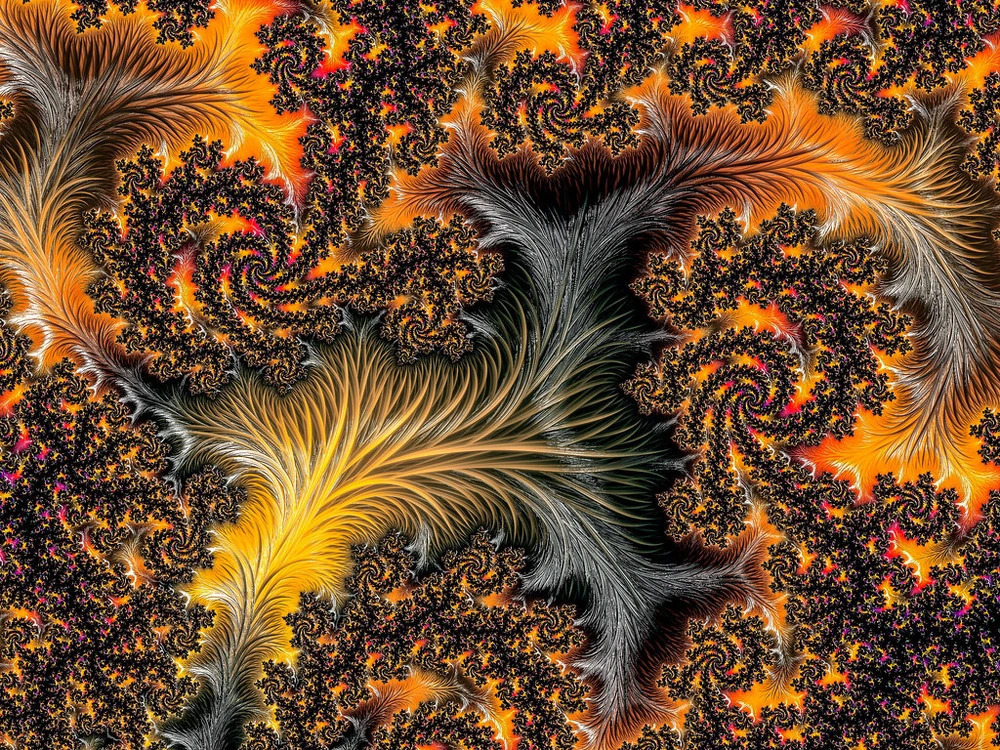Object Class: Keter
Threat Level: ████
End-of-World Classification: K-Kalamity-Class “Appetite Singularity” Scenario
THE FOLLOWING FILES HAVE BEEN CLASSIFIED
ANY NON-AUTHORIZED PERSONNEL ACCESSING THIS FILE WILL BE IMMEDIATELY TERMINATED THROUGH BERRYMAN-LANGFORD MEMETIC KILL AGENT.
SCROLLING DOWN WITHOUT PROPER MEMETIC INOCULATION WILL RESULT IN IMMEDIATE CARDIAC ARREST FOLLOWED BY DEATH.

Welcome, authorized personnel. Please select your desired file.
Object Class: Keter
Threat Level: ████
End-of-World Classification: K-Kalamity-Class “Appetite Singularity” Scenario
SCP-YuYuKo is to be kept in a deep-cryostasis tea room located in Sublevel-88 of Site-Hakugyokurou. The chamber is lined with neutron-dampening polycarbonate plates and monitored by automated feeding drones equipped with high-speed-calorie-dispensers™.
SCP-YuYuKo must be fed at 90-minute intervals with meals ranging from high-density starches (cereal) to Class-A soul cuisine (hamburger). Underfeeding for more than 180 minutes will result in progressive quantum instability and a significant rise in background giggling, indicating critical pre-fission behavior. Feeding SCP-YuYuKo any meal with a combined caloric value below 88.314 calories results in critical pre-fission behavior.
Any Foundation personnel assigned to SCP-YuYuKo must undergo Nuclear Gastronomy Orientation, Basic Ghost Etiquette, and Emergency Picnic Protocols. Interaction outside of designated mealtimes is forbidden unless carrying offerings of sufficient caloric (88.314KCal) and spiritual value.
In the event SCP-YuYuKo declines a meal, personnel are to initiate Project Bento Alpha: a culinary failsafe involving ████-grade soul seasoning and tearful poetry.
SCP-YuYuKo appears as a gentle, elegant young woman of spectral appearance, consistently described as "serene," "hungry," and "ticking." Internally, SCP-YuYuKo is a fully-primed sentient thermonuclear warhead, composed of a soul-reactive isotope indistinguishable from Uranium-235, down to the molecular level; except hers is cute and wears a kimono.
SCP-YuYuKo's quasi-metaphysical reactor core is bound to a delicate emotional feedback loop. When fed regularly, she remains docile and whimsical. If her energy levels drop or she becomes "a little peckish," quantum vibrations begin to ripple outward, destabilizing gravity itself. Prolonged hunger has led to the complete obliteration and spiritual redecoration of three alternate dimensions (See Event Logs Addendum 6959.5, YUY-03,YUY-05B and "That Time We Forgot Dessert").
When asked about her internal mechanism, SCP-YuYuKo stated:
“I’m just a bit full of energy~ But if I don’t eat, it gets… explosive~ Teehee~”
Her estimated yield upon full detonation is calculated at 4.3 Omnicatosakuratonnes, sufficient to obliterate Gensokyo, the multiverse, and any metaphysical afterlife systems within blast radius.
Trigger: Hunger, loneliness, skipped meals, diet watermelon, or an undercooked rice ball.
Warning Signs: Pouting, ethereal rumbling, cherry blossoms forming mushroom cloud spirals.
Result: Complete cosmic saturation with death-aspected spiritual particles. Reality forcibly rebooted in a soft pink hue, known as “The Second Spring.”
Date: ██/██/202█
Location: Site-██, Sublevel Theta-9 (Anomalous Memetics & Onto-Nuclear Research Wing)
Authorized by: Dr. Marron, Dr. Hoshino, Clearance Level 4/6959-Y
Purpose: To assess the metaphysical compatibility of SCP-6959's logical-paradox reality loops with SCP-YuYuKo's emotionally-driven soul-reactive isotope core. SCP-6959 was to be kept in a close-but-separate facility from SCP-YuYuKo with SCP-YuYuKo-01. Controlled exposure was limited to 3 minutes under triple-nullified temporal sheathing and memetic dampeners to SCP-YuYuKo.
Procedure: SCP-YuYuKo-01 is a fumo plush of SCP-YuYuKo created in SCP-6959's likeness as O5-██ deemed direct contact with SCP-6959 "idiotic". SCP-YuYuKo-01 is fitted with a radio for direct communication with SCP-YuYuKo to SCP-6959. SCP-6959 was asked to generate a "soft paradox" in the presence of SCP-YuYuKo-01, under nutritional stability conditions. SCP-YuYuKo was provided a 3.2 kg offering of spiritually-charged sakuramochi (provided by Site-██'s Thaumaturgy Cuisine Lab) to maintain baseline docility.
Post-Incident Notes:
⠀⠀⠀⠀⠀⠀⠀⠀⠀⠀⠀⠀⠀⠀⠀⠀⠀⠀⠀⠀⠀⠀⠀⠀⠀⠀⠀⠀⠀⠀⠀⠀⠀⠀⠀⣠⡴⠿⣦⡀⠀⠀⠀⠀⠀⠀⠀⠀⠀⠀⠀⠀⠀⠀⠀⠀⠀⠀⠀⠀⠀⠀⠀⠀⠀⠀⠀⠀⠀⠀⠀⠀⠀⠀⠀⠀⠀⠀ ⠀⠀⠀⠀⠀⠀⠀⠀⠀⠀⠀⠀⠀⠀⠀⠀⠀⠀⠀⠀⠀⠀⠀⠀⠀⠀⠀⠀⠀⠀⠀⠀⢀⡴⠟⠁⠀⠀⠈⠻⣦⡀⠀⠀⠀⠀⠀⠀⠀⠀⠀⠀⠀⠀⠀⠀⠀⠀⠀⠀⠀⠀⠀⠀⠀⠀⠀⠀⠀⠀⠀⠀⠀⠀⠀⠀⠀⠀ ⠀⠀⠀⠀⠀⠀⠀⠀⠀⠀⠀⠀⠀⠀⠀⠀⠀⠀⠀⠀⠀⠀⠀⠀⠀⠀⠀⠀⠀⠀⢀⡴⠋⠀⠀⠀⠀⠀⠀⠀⠈⠻⣆⡀⠀⠀⠀⠀⠀⠀⠀⠀⠀⠀⠀⠀⠀⠀⠀⠀⠀⠀⠀⠀⠀⠀⠀⠀⠀⠀⠀⠀⠀⠀⠀⠀⠀⠀ ⠀⠀⠀⠀⠀⠀⠀⠀⠀⠀⠀⠀⠀⠀⠀⠀⠀⠀⠀⠀⠀⠀⠀⠀⠀⠀⠀⠀⢀⡴⠋⠀⠀⠀⠀⠀⠀⠀⠀⠀⠀⠀⠈⠳⣄⠀⠀⠀⠀⠀⠀⠀⠀⠀⠀⠀⠀⠀⠀⠀⠀⠀⠀⠀⠀⠀⠀⠀⠀⠀⠀⠀⠀⠀⠀⠀⠀⠀ ⠀⠀⠀⠀⠀⠀⠀⠀⠀⠀⠀⠀⠀⠀⠀⠀⠀⠀⠀⠀⠀⠀⠀⠀⠀⢀⣀⡴⠋⠀⠀⠀⠀⠀⠀⠀⠀⠀⠀⠀⠀⠀⠀⠀⠈⠛⠶⠤⣤⣄⡀⠀⠀⠀⠀⠀⠀⠀⠀⠀⠀⠀⠀⠀⠀⠀⠀⠀⠀⠀⠀⠀⠀⠀⠀⠀⠀⠀ ⠀⠀⠀⠀⠀⠀⠀⠀⠀⠀⠀⠀⠀⠀⠀⠀⠀⠀⠀⠀⠀⣀⣤⠖⠛⠉⠁⠀⠀⠀⠀⠀⠀⠀⠀⠀⠀⠀⠀⠀⠀⠀⠀⠀⠀⠀⠀⠀⠀⠀⠉⠳⢦⣀⠀⠀⠀⠀⠀⠀⠀⠀⠀⠀⠀⠀⠀⠀⠀⠀⠀⠀⠀⠀⠀⠀⠀⠀ ⠀⠀⠀⠀⠀⠀⠀⠀⠀⠀⠀⠀⠀⠀⠀⠀⠀⠀⣠⡴⠞⠉⠀⠀⠀⠀⠀⠀⠀⠀⠀⣠⣴⣶⣿⣿⣿⣿⣷⣶⣤⣀⠀⠀⠀⠀⠀⠀⠀⣦⠀⠀⠀⠈⠛⢦⡀⠀⠀⠀⠀⠀⠀⠀⠀⠀⠀⠀⠀⠀⠀⠀⠀⠀⠀⠀⠀⠀ ⠀⠀⠀⠀⠀⠀⠀⠀⠀⠀⠀⠀⠀⠀⠀⣠⡴⠛⠁⠀⠀⠀⠀⢀⠞⠁⠀⠀⠀⣠⣾⣿⣿⣿⠿⠿⢿⡿⠿⣿⣿⣿⣧⡀⠀⠀⠀⠀⠀⠀⠀⠀⠀⠀⠀⠀⠙⢷⣄⠀⠀⠀⠀⠀⠀⠀⠀⠀⠀⠀⠀⠀⠀⠀⠀⠀⠀⠀ ⠀⠀⠀⠀⠀⠀⠀⠀⠀⠀⠀⠀⠀⢠⡾⠋⠀⠀⠀⠀⠀⠀⣰⠇⠀⠀⠀⠀⢸⣿⣿⣿⢯⣭⣾⣿⣿⣷⣦⣜⢿⣿⣿⣷⠀⠀⠀⠀⠀⠀⠀⠀⠀⠀⠀⠀⠀⠀⠙⢧⡀⠀⠀⠀⠀⠀⠀⠀⠀⠀⠀⠀⠀⠀⠀⠀⠀⠀ ⠀⠀⠀⠀⠀⠀⠀⠀⠀⠀⠀⠀⣴⠏⠀⠀⠀⠀⠀⠀⠀⣴⠋⠀⠀⠀⠀⢀⣿⣿⣿⠡⣾⣿⣿⣿⣿⣿⣿⣿⡆⢹⣿⣿⣷⠀⠀⠀⠀⠀⠀⠀⢱⡄⠀⠀⠀⠀⠀⠈⠻⣄⠀⠀⠀⠀⠀⠀⠀⠀⠀⠀⠀⠀⠀⠀⠀⠀ ⠀⠀⠀⠀⠀⠀⠀⠀⠀⠀⠀⣼⠃⠀⠀⠀⠀⠀⠀⠀⣰⠇⠀⠀⠀⠀⠀⠸⣿⣿⣿⠱⣿⣿⣿⣿⣿⣿⣿⣿⣟⣼⣿⣿⠿⠀⠀⠀⠀⠀⠀⠀⠀⠹⣆⠀⠀⠀⠀⢀⡀⠹⣆⠀⠀⠀⠀⠀⠀⠀⠀⠀⠀⠀⠀⠀⠀⠀ ⠀⠀⠀⠀⠀⠀⠀⠀⠀⠀⣼⠃⠀⠀⠀⠀⠘⣧⠀⢰⠏⠀⠀⠀⠀⠀⠀⠁⣿⣿⣿⡰⢿⣿⣿⣿⣿⣿⣿⣿⣿⣿⣿⡟⠂⢀⣤⣶⣦⠀⠀⠀⠀⠀⢹⡆⠀⢀⣴⣿⠇⠀⢻⡀⠀⠀⠀⠀⠀⠀⠀⠀⠀⠀⠀⠀⠀⠀ ⠀⠀⠀⠀⠀⠀⠀⠀⠀⣼⠃⠀⠀⠀⠀⠀⠀⠘⣧⡟⠀⠀⠀⠀⠀⠀⠀⠀⢹⣿⣿⣷⣮⠻⠿⣿⣿⣿⣿⣿⣿⡿⠏⠀⣠⣿⣿⡟⠀⠀⠀⠀⠀⠀⠀⢻⣄⣾⡿⠇⠀⣠⠘⣇⠀⠀⠀⠀⠀⠀⠀⠀⠀⠀⠀⠀⠀⠀ ⠀⠀⠀⠀⠀⠀⠀⠀⠀⡇⣀⠀⠀⠀⠀⠀⠀⠀⣿⠃⠀⠀⠀⠀⠀⠀⠀⠀⠀⠻⢿⣿⣿⣿⣶⣬⣾⣏⣛⣉⣉⣤⣴⣾⣿⣿⠋⠀⠀⠀⠀⠀⠀⠀⠀⠈⣿⡟⠁⠀⢠⣟⡇⢻⠀⠀⠀⠀⠀⠀⠀⠀⠀⠀⠀⠀⠀⠀ ⠀⠀⠀⠀⠀⠀⠀⠀⠀⡇⠸⣧⠀⠀⠀⠀⣀⢰⡏⠀⠀⠀⠀⠀⠀⠀⠀⠀⠀⠀⠀⠉⠛⠿⣿⣿⣿⣿⣿⣿⣿⣿⣿⣿⠛⠁⠀⡀⠀⠀⠀⣀⠀⠀⠀⣀⢹⣥⣿⢆⣾⢻⣇⢸⠀⠀⠀⠀⠀⠀⠀⠀⠀⠀⠀⠀⠀⠀ ⠀⠀⠀⠀⠀⠀⠀⠀⠀⣿⡄⠙⢷⣄⣀⣶⣽⣿⠁⠀⠠⣤⡀⠀⠀⠀⠀⠀⠀⠀⠀⠀⠀⠀⠁⠀⠛⠉⠉⠛⠋⠉⠁⠈⢀⡴⠟⠁⠀⠀⣰⡏⠀⢀⣼⣥⣶⠛⠋⠉⠙⠛⠿⣾⡀⠀⠀⠀⠀⠀⠀⠀⠀⠀⠀⠀⠀⠀ ⠀⠀⠀⠀⠀⠀⠀⠀⢀⣽⡿⠞⠋⠉⠀⠀⠀⠀⠷⢠⡆⠈⢻⡄⠀⠀⠀⣆⡀⢀⠀⣀⣀⡀⡀⠀⢀⣀⢀⡀⣀⣀⣀⣠⠟⠁⢀⠀⠀⢀⣿⠁⠀⠈⠋⠀⠛⠀⠀⠀⠀⠀⠀⠈⠙⠛⠲⣦⡀⠀⠀⠀⠀⠀⠀⠀⠀⠀ ⠀⠀⠀⠀⠀⠀⣀⡴⠟⠁⠀⠀⠀⠀⠀⠀⠀⠀⠙⣈⢷⣄⠶⣷⡀⠀⠀⠙⠷⠿⢿⠛⠉⠉⠛⠻⣿⣿⣝⠛⠹⣏⠙⠻⠿⠾⠋⠀⠀⣸⡇⠀⠀⠀⢴⣦⣀⣦⠀⣰⣦⠶⠆⠀⠰⢶⣿⣿⡇⠀⠀⠀⠀⠀⠀⠀⠀⠀ ⠀⠀⠀⢀⡴⠛⠉⠀⠀⢠⣄⠀⠀⠀⠀⠀⠀⠀⠀⢙⡀⠙⢷⣼⣧⠀⠀⠀⠀⠀⠀⣨⣷⠀⢀⣤⠄⢈⠛⠀⠀⠙⣧⡀⠀⠀⠀⠀⢠⣿⡥⠀⠀⠀⠈⠻⣿⡿⣦⡙⢿⣿⣄⡀⠀⡼⠋⢸⣅⠀⠀⠀⠀⠀⠀⠀⠀⠀ ⠀⠀⠀⣿⠈⠉⠐⠀⠀⠀⠘⢷⣄⠀⠀⠀⠀⠀⠀⢈⢷⣄⠈⣿⡿⣧⡀⠀⠀⠀⠀⠉⠉⢀⡾⠛⢦⡀⢷⠀⠀⢤⠈⠙⣷⣄⠀⠀⢸⡿⣷⣄⠀⠀⠀⠀⠀⠉⠛⢿⣼⢿⣿⡙⠷⠀⣄⠀⠙⢧⣀⠀⠀⠀⠀⠀⠀⠀ ⠀⠀⠀⢸⡄⠀⠀⠀⠀⠀⣠⣿⣹⠷⣄⠀⠀⠀⠀⠀⠘⠛⣰⡿⣯⣿⣳⣄⡀⠀⠀⢀⣴⠟⠁⠀⠀⠙⢿⣥⣤⡀⠹⠄⠉⠉⠀⠀⣿⡻⠛⢿⣷⡀⠀⠀⠀⣠⡴⠟⠁⠈⢻⣯⣄⡴⣟⠀⠀⣰⣿⠀⠀⠀⠀⠀⠀⠀ ⠰⣞⠛⠉⠓⠀⠀⠀⢀⣸⢏⣾⠏⠀⠈⠻⢦⣤⣀⣀⣤⠾⣫⡾⣋⡀⣋⢩⣛⠷⢿⡛⠁⠀⠀⠓⠀⠀⢢⡨⢙⡿⣷⣀⡀⠀⢀⣼⠋⠡⠀⠀⠙⢷⣤⣾⣿⣯⠀⡄⠀⠀⠈⣿⣿⠉⠉⢀⣴⣿⡇⠀⠀⠀⠀⠀⠀⠀ ⠀⢻⣆⠀⠀⠀⠀⠀⠈⣿⣾⠋⠀⠀⠀⠀⠀⠀⠠⣠⣴⣟⣿⣤⣼⣾⣭⣀⣝⣶⣬⣽⣦⡀⢀⠀⠀⠀⠀⠀⠀⠀⣾⠙⢿⣷⣿⣵⡆⠀⠀⢀⣀⡀⠸⣲⣿⣿⣧⠸⡆⠀⠀⠘⢻⣶⣞⣻⡿⠋⠀⠀⠀⠀⠀⠀⠀⠀ ⠀⠀⠹⣷⣤⠀⢀⣠⣿⡿⠁⠀⠀⠀⠀⠀⣀⡴⣿⣿⣿⣿⣿⣿⣿⣿⣿⣿⣿⣿⣿⣿⣿⣿⣾⣄⠀⠀⠀⠀⠀⣸⣷⣿⣿⣿⣿⣿⣿⣿⣿⣿⣿⣿⣷⡟⢸⣿⣿⡇⣧⠀⠀⠀⠸⣿⡿⠋⠀⠀⠀⠀⠀⠀⠀⠀⠀⠀ ⠀⠀⠀⠙⣾⣳⣮⣻⡋⠀⠀⠀⠀⠴⢆⡼⢋⡆⣿⣿⣟⢠⡄⢻⣿⣿⣿⣿⣿⣿⣿⣿⣿⣿⣿⠛⠷⣤⡀⠀⠀⠻⠻⣿⣿⣛⣽⣿⣿⣿⣿⣿⣿⣿⡇⠄⢠⣿⣿⣿⠷⠀⠀⠀⠠⢿⡀⠀⠀⠀⠀⠀⠀⠀⠀⠀⠀⠀ ⠀⠀⠀⠀⠈⠻⢿⡟⠁⠀⠀⠀⠀⢠⡟⠁⢸⡇⣿⣟⣿⠹⠀⢸⣿⣿⣿⣿⣿⣿⣿⣿⣿⣿⣋⠀⠀⠈⠙⢶⣄⠀⠀⣿⣿⣿⣿⣿⣿⣿⣿⣿⣿⣯⠇⠀⢸⣿⣿⣿⡇⠀⠀⠀⠀⣘⣇⠀⠀⠀⠀⠀⠀⠀⠀⠀⠀⠀ ⠀⠀⠀⠀⠀⣰⠟⠀⠀⠀⠀⠀⣰⡟⠀⠀⠀⢧⣻⣧⠘⢃⢠⢆⢻⣿⣿⣿⣿⣿⣿⣿⣿⡿⠃⠀⠀⠀⠀⠀⠈⠁⠀⢹⣿⣿⣿⣿⣿⣿⣿⣿⣿⡏⠀⠀⣸⡟⣿⢫⣿⠀⠀⠀⠀⠀⣿⠀⠀⠀⠀⠀⠀⠀⠀⠀⠀⠀ ⠀⠀⠀⣠⡾⢁⣴⡖⠀⠀⠀⣼⣿⡆⠀⠀⠀⠈⠁⢻⣎⠉⠀⠀⠠⠛⢿⣿⣿⣿⣿⣿⡿⠋⠀⠀⠀⠀⠀⠀⠀⠀⠀⠀⠿⣿⣿⣿⣿⣿⣿⡿⠋⠀⠀⢠⡿⢠⡿⣾⣿⡆⠀⠀⠀⠀⣿⠀⠀⠀⠀⠀⠀⠀⠀⠀⠀⠀ ⠀⠀⠘⠿⠛⠋⠉⣇⠀⠀⣼⣧⠹⣟⠂⠀⠀⠀⠀⠀⢻⣄⠀⠀⠀⠀⠀⠋⠉⠙⠛⠃⠀⠀⠀⠀⠀⠀⠀⠀⠀⠀⠀⠀⠀⠈⠿⠿⡿⠿⠋⠀⠀⠀⣸⡟⠰⣿⢣⢰⢿⡇⠀⠀⣰⣆⣾⡄⠀⠀⠀⠀⠀⠀⠀⠀⠀⠀ ⠀⠀⠀⠀⠀⠀⠀⢻⠀⢰⡏⢿⠀⠹⣦⢀⠀⠀⠀⠀⢤⠹⣦⡀⠀⠀⠀⠀⠀⠀⠀⠀⠀⠀⠀⠀⠀⠀⠀⠀⠀⠀⠀⠀⠀⠀⠀⠀⠀⠀⠀⠀⢠⡞⢫⣜⣿⣧⠎⠇⣸⡇⠀⣼⠇⠙⠛⠻⡄⠀⠀⠀⠀⠀⠀⠀⠀⠀ ⠀⠀⠀⠀⠀⠀⠀⠘⣧⣿⠀⠀⠀⠀⢨⣿⣷⢀⡀⠀⠀⠀⠘⢷⡄⠀⠀⠀⠀⠀⠀⠀⠀⠀⠀⠀⢀⣤⣤⣦⠀⠀⠀⠀⠀⠀⠀⠀⠀⠀⠀⠐⢂⣠⣾⣿⢛⡌⠀⢀⣾⣡⣾⠃⠀⠀⠀⠀⠻⡄⠀⠀⠀⠀⠀⠀⠀⠀ ⠀⠀⠀⠀⠀⠀⠀⠀⡾⠁⠀⡄⠀⠀⠐⣷⣿⣷⣶⣄⠀⠀⠀⢀⠹⣦⣦⡠⠄⠀⠀⠀⠀⠀⠀⠀⠐⠛⠙⠋⠀⠀⠀⠀⠀⣀⠀⠀⣀⣤⣹⣷⣿⣿⣿⢋⡉⠀⠀⠸⣷⡿⠋⠀⠀⠀⠀⠀⠀⢻⡄⠀⠀⠀⠀⠀⠀⠀ ⠀⠀⠀⠀⠀⠀⠀⣸⠃⠀⢀⡇⠀⠀⢸⣷⣿⣿⣿⣿⣧⣀⠀⠀⠀⠙⣿⠙⠻⣾⣿⣾⣷⣶⣦⣤⣤⡤⢤⣤⣀⣀⣠⣤⣬⣤⣿⣾⣿⣿⣟⠛⣿⣿⠏⠀⠀⠀⠀⣾⡟⠀⠀⠀⠀⠀⠀⠀⠀⠀⢳⡄⠀⠀⠀⠀⠀⠀ ⠀⠀⠀⠀⠀⠀⢠⡏⠀⠀⣸⠇⠀⣠⡟⠻⣿⣿⣿⣿⣿⣿⣦⣤⠄⠰⡙⣧⡀⢉⣿⣿⣿⣿⣿⣿⣿⣿⣿⣿⣿⣿⣿⣿⣿⣿⢟⢟⣿⣿⠿⢿⣿⣿⡀⠂⠀⢐⡾⠋⠀⠀⠀⠀⠀⠀⠀⠀⠀⠀⠀⢹⡄⠀⠀⠀⠀⠀ ⠀⠀⠀⠀⠀⠀⣼⠁⠀⠀⣿⣠⡾⠋⠀⠀⠘⢛⣿⣿⣿⣿⣿⣿⡛⣶⣇⣹⡷⡞⠿⣿⣿⣿⣿⣿⣿⣿⣿⣿⣿⣿⣿⣿⣿⣃⣰⣿⣿⣁⡀⣼⣇⣿⠑⢠⣶⠟⠛⠶⠶⠦⠤⠄⠀⠀⠀⠀⠀⠀⠀⠀⢿⡀⠀⠀⠀⠀ ⠀⠀⠀⠀⠀⢰⣏⣀⣀⣀⣶⡿⠶⠶⠞⠛⠙⠿⣿⡛⣿⣿⣭⢾⢷⡅⠈⠉⠁⠰⣿⣿⣿⣿⣿⣿⠟⠛⢿⣿⣿⣿⣿⣿⣿⡿⠛⠃⢠⣿⣧⡏⢸⣿⢠⣾⡏⠀⠀⠀⠀⠀⠀⠀⠀⢀⡖⠀⠀⣸⣿⠆⢀⡻⣄⠀⠀⠀ ⠀⠠⡤⣤⣴⡟⠉⠀⣯⠉⠀⠀⠀⠀⠀⠀⠀⠀⠘⣷⡘⣿⣿⣶⣖⡻⣶⡀⣠⣾⣿⣿⣿⣿⣿⠛⡁⠀⠉⢹⢿⣿⣿⣿⣿⣴⡋⢀⣾⣿⣿⣿⣿⣿⠾⣿⠁⠀⠀⠀⠀⠀⠀⠀⠀⣸⠃⠀⢠⣿⡟⠀⣼⠁⢻⡄⠀⠀ ⠀⠀⢷⠈⣿⣧⠀⠀⠸⣆⠀⠀⠀⠀⠀⠀⠀⠀⠀⠈⢷⡹⣿⣿⣴⡿⣿⣿⣯⣝⣛⣛⣻⡿⢿⣿⣿⣿⣶⣿⣦⣿⣿⣿⣿⣿⣷⣿⣿⣿⣿⣿⣿⣿⣷⣯⡏⠀⠀⠀⠀⠀⠀⠀⢠⡏⠀⠀⣾⡿⡇⢰⠏⠀⠀⢻⡀⠀ ⠀⠀⠸⡆⢹⣿⡆⠀⠀⢻⡄⠀⠀⠀⠀⠀⠀⠀⠀⠀⠈⢳⣿⡿⠋⢀⣿⡿⠿⠿⢿⣿⣿⣿⣿⣿⣿⣿⣿⣿⣿⣿⣿⣿⣿⣿⣿⣿⣿⣿⣿⣿⣿⣿⣿⣿⡅⠀⠀⠀⠀⠀⠀⢀⡾⠀⠀⣾⣿⠳⢠⡟⣦⣀⠀⠈⣧⠀ ⠀⠀⠀⢷⠀⢿⣿⡀⠀⠀⢷⡀⠀⠀⠀⠀⠀⠀⠀⠀⠞⣿⠋⢀⣴⣿⣟⠁⠀⠀⢰⡇⡼⣘⣿⣿⣿⣿⣿⣿⣿⣿⣿⠿⢿⣿⣿⣿⣿⣿⣿⣿⣿⡛⢻⣿⣿⣷⣦⡄⠀⠀⢀⡾⠁⠀⣰⣿⠏⢀⡿⣸⠃⠉⠉⠙⠻⠆ ⠀⠀⠀⠘⣧⡸⣿⣷⡀⠀⠈⣷⠀⠀⠀⠀⠀⠀⠀⠁⣾⠏⣴⠟⠉⠉⠉⠀⠀⢠⣟⡼⠃⠉⠃⢻⣿⣿⣿⣿⣿⠟⠁⠀⠀⠙⠿⠿⠿⠛⠉⠀⠉⠻⣼⣿⣿⡏⠃⠀⠀⢠⡞⠁⠀⣠⣿⡟⠀⣼⢣⡟⠀⠀⠀⠀⠀⠀ ⠀⠀⠀⠀⠈⢷⣹⣿⣷⡀⠀⠘⣧⠀⠀⠀⠀⠀⢀⣸⢏⣼⠇⠀⠀⠀⠀⠀⠀⠀⣼⠁⠀⠀⢠⡆⣹⠟⠛⠉⠀⠀⠀⠀⠀⠀⠀⠀⠀⠀⠀⠀⠀⠀⠀⠙⢷⣍⡄⢀⣴⠟⠁⠀⣰⣿⠟⠈⣼⣷⠋⠀⠀⠀⠀⠀⠀⠀ ⠀⠀⠀⠀⠀⠈⢷⣹⣿⣷⡀⠀⠘⣧⡀⠀⠀⣠⡾⠏⠋⠁⠀⠀⠀⠀⠀⠀⠰⣰⠟⠷⠇⢀⣒⣸⣟⠀⠀⠀⠀⠀⠀⠀⠀⣀⠀⠀⠀⠀⠀⠀⠀⠀⠀⠀⠀⠉⠳⢾⣅⠀⣠⣾⡿⠋⢠⣾⡿⠃⠀⠀⠀⠀⠀⠀⠀⠀ ⠀⠀⠀⠀⠀⠀⠈⣧⠙⣿⣷⡆⠀⠈⢳⣤⡾⠋⠀⠀⠀⠀⠀⠀⠀⠀⠀⠀⣼⢏⣠⠄⢠⠟⣀⡿⠁⠀⠀⠀⠀⠀⠀⢰⠾⠏⠙⠳⣦⡀⣴⠞⠋⠉⣛⣿⠆⠀⠀⠀⠈⣿⣿⠟⠀⠴⣿⠋⠀⠀⠀⠀⠀⠀⠀⠀⠀⠀ ⠀⠀⠀⠀⠀⠀⠀⠈⢷⡘⢿⣿⣆⢀⣾⠋⠀⠀⠀⠀⠀⠀⠀⠀⠀⠀⠀⣴⠟⠾⠏⢀⣀⣀⣿⠇⠀⠀⠀⠀⠀⠀⠀⠘⣧⡀⠀⠀⢈⣿⣁⣠⣴⠾⠿⠦⣤⣄⠀⠀⢀⣀⣉⡴⣟⡾⠃⠀⠀⠀⠀⠀⠀⠀⠀⠀⠀⠀ ⠀⠀⠀⠀⠀⠀⠀⠀⢠⣷⡘⣿⣿⣿⠁⠀⠀⠀⠀⠀⠀⠀⠀⠖⠂⢀⣞⣁⠀⠀⠠⠀⢠⣾⠇⠀⠀⠀⠀⠀⠀⠀⢀⡠⠬⠟⠛⣚⣿⠿⢿⣍⣀⣀⣀⠀⢐⣯⣵⣿⣿⣿⣿⣿⣾⣇⠀⠀⠀⠀⠀⠀⠀⠀⠀⠀⠀⠀ ⠀⠀⠀⠀⠀⠀⠀⠀⢀⣿⣿⣮⣿⣡⣶⣶⣿⣿⣿⣶⣦⣤⣀⠐⢿⣿⣿⣽⣗⣲⡆⠰⠿⠏⠀⠀⠀⠀⠀⠀⠀⠀⠤⠤⠶⠚⢻⠋⠀⠀⠀⣇⣈⣽⣿⣿⣿⣿⣿⣿⣿⣿⣿⣿⣿⣿⡀⠀⠀⠀⠀⠀⠀⠀⠀⠀⠀⠀ ⠀⠀⠀⠀⠀⠀⠀⠀⣸⢿⣽⣫⣿⣿⣿⣿⣿⣿⣿⣿⣿⣿⣿⣿⣶⣦⡭⣭⣟⣻⣿⠿⣷⠶⢤⣄⣀⠀⠀⠀⠀⠀⠀⠀⠀⠀⢸⣆⣤⣶⣿⣿⣿⣿⣿⣿⣿⣿⣿⣿⣿⣿⣿⣿⣿⣯⡷⠀⠀⠀⠀⠀⠀⠀⠀⠀⠀⠀ ⠀⠀⠀⠀⠀⠀⠀⠀⣿⢈⣾⣿⢿⣿⣿⣿⣿⣿⣿⣿⣿⣿⣿⣿⣿⣿⡿⠀⠈⠉⠳⠾⡿⠀⠀⠈⠉⠉⠛⠓⠲⠶⠶⠶⠒⠒⠛⠉⠀⠙⢿⣿⣿⣿⣿⣿⣿⣿⣿⣿⣿⣿⣿⣿⣿⠉⠛⠀⠀⠀⠀⠀⠀⠀⠀⠀⠀⠀ ⠀⠀⠀⠀⠀⠀⠀⠀⠈⠛⠁⠀⠸⣿⣿⣿⣿⣿⣿⣿⣿⣿⣿⣿⣿⣿⠂⠀⠀⠀⠀⠀⠀⠀⠀⠀⠀⠀⠀⠀⠀⠀⠀⠀⠀⠀⠀⠀⠀⠀⠈⠻⣿⣿⣿⣿⣿⣿⣿⣿⣿⣿⣿⡿⠁⠀⠀⠀⠀⠀⠀⠀⠀⠀⠀⠀⠀⠀ ⠀⠀⠀⠀⠀⠀⠀⠀⠀⠀⠀⠀⠀⠈⠻⣿⣿⣿⣿⣿⣿⣿⣿⣿⡿⠃⠀⠀⠀⠀⠀⠀⠀⠀⠀⠀⠀⠀⠀⠀⠀⠀⠀⠀⠀⠀⠀⠀⠀⠀⠀⠀⠈⠛⠿⢿⣿⣿⣿⣿⣿⠟⠋⠀⠀⠀⠀⠀⠀⠀⠀⠀⠀⠀⠀⠀⠀⠀ ⠀⠀⠀⠀⠀⠀⠀⠀⠀⠀⠀⠀⠀⠀⠀⠀⠉⠛⠻⠿⠿⠿⠋⠁⠀⠀⠀⠀⠀⠀⠀⠀⠀⠀⠀⠀⠀⠀⠀⠀⠀⠀⠀⠀⠀⠀⠀⠀⠀⠀⠀⠀⠀⠀⠀⠀⠀⠀⠀⠀⠀⠀⠀⠀⠀⠀⠀⠀⠀⠀⠀⠀⠀⠀⠀⠀⠀⠀
⠀⠀
On ██/██/████, researcher designated codename 'Clownpiece' laced SCP-YuYuKo’s lunch with one (1) 1x1 inch square cube of diet watermelon.
Result:
Containment reestablished after 'Clownpiece' offered a genetically modified 8x8 cube of regular watermelon.
On ██/██/████, a meal delivery drone suffered a GPS error, delaying SCP-YuYuKo’s lunch by 11 minutes.
Casualties:
Containment reestablished after Yukari Yakumo personally air-dropped a six-course soul banquet into SCP-YuYuKo’s mouth while apologizing profusely.
“You may laugh now, but if we so much as forget to butter her toast, we’ll be pink mist.”
Containment teams are advised to wear full-body lead-lined suits embroidered with sakura patterns, as SCP-YuYuKo becomes emotionally unstable when others “don’t match the vibe”.
Attempts to transmute SCP-YuYuKo into a less reactive isotope (i.e., U-238) have failed, as she "refuses to be downgraded".SCP-YuYuKo has been officially declared Too Hungry To Fail.
Feed her, or feed everything to her.